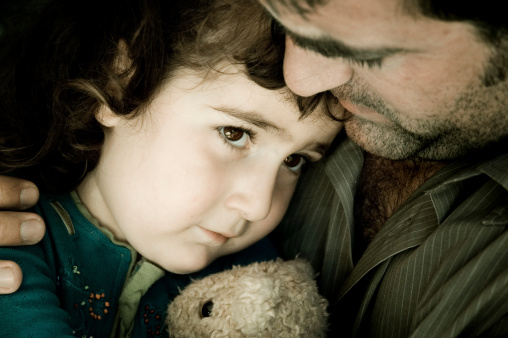
Now that everyone is back to school, here are some important things to remember for divorced families:
1.
Be Mindful of the Schedule. Parents often look forward to the routine and structure of school, that is often lost in the summer months. Kids need that same sort of structure. Depending on the age of the children, help keep them apprised of the schedule with an online-scheduler or written calendar. Remember that changes to a schedule affect everyone – so be mindful of how adjustments will be accepted by everyone. You have to balance flexibility and adaptability.
2.
Stock up on School Supplies. Kids often display anxiety with the need to remember clothes, school supplies, or materials for extra curricular activities (sports equipment, musical instruments, school supplies, etc.). Make sure both houses are stocked up or the kids have a good routine (with parent support) to make sure they have everything they need at both homes.
3.
Start Communicating. There are so many elements of children’s daily lives that they are interested in sharing after a busy day at school. And then the school often communicates with parents via emails or handouts. Sometimes things are learned during school pick-up or by talking to another parent. This information should be shared — come up with a routine for sharing relevant information about the kids so that both parents are fully informed. Daily emails or texts are often an easy way to keep the off duty parent informed.
4.
Plan for Homework and Activities. Kids often have full schedules afters school. Between homework and extra-curricular activities, many parents feel as if their after school hours are as busy as their work days. Together with the children come up with a plan to manage the responsibilities every day. It is okay to have different schedules at each home, but consider coordinating efforts or sharing your plan so both homes can best support the children.
5.
Plan for Downtime. Life gets busy. Make effort to find time for fun and relaxation as the busy life of school starts up. Everyone deserves a break – so plan for a game night or go see a movie. You will all appreciate a little downtime.
 It may feel like it should still be the middle of June and that school just let out, but the harsh reality is that back-to-school season is upon us. Co-parenting is hard enough during the summer when schedules are flexible are a bit more relaxed, but adding in the back-to-school madness creates another level of co-parenting stress. Who will shop for school supplies and clothes, who will volunteer for the field trips this year, who will fill out all the school forms, who will sign the kids up for their sports and activities?
Historically these tasks all fall on the mother 99% of the time. It’s likely that your ex-husband never even realized these tasks needed to be done because it’s such an ingrained part of the “mom routine” that moms just do them without even thinking twice! Throwing in the divide of a divorce though and these everyday tasks suddenly can (and should) be divided. We can’t stress enough how vital a well laid out parenting plan is, but the simple everyday responsibilities like filling out paperwork are often missed when writing these plans. Overwhelmed and not sure where to even begin with tackling back-to-school tasks? – We blogged some very helpful back-to-school co-parenting tips here!
Here’s to another great school year! It’s possible that you’re looking forward to getting back into the routine that the school year offers, yet it still brings on a sadness of another year/summer having passed. As caught up as we can get in the emotions of not wanting to see an ex at a school event or activity, it is important to remember to enjoy and embrace your children at the ages they are. Soak up every moment, and if your parenting plan allows for it try to get to as many of your children’s events as possible, as we all know the time passes entirely too quickly. As they say, “The days are long but the years are short.”
How do you divide up these tasks with your ex? We’d love to hear in the comment section below.
It may feel like it should still be the middle of June and that school just let out, but the harsh reality is that back-to-school season is upon us. Co-parenting is hard enough during the summer when schedules are flexible are a bit more relaxed, but adding in the back-to-school madness creates another level of co-parenting stress. Who will shop for school supplies and clothes, who will volunteer for the field trips this year, who will fill out all the school forms, who will sign the kids up for their sports and activities?
Historically these tasks all fall on the mother 99% of the time. It’s likely that your ex-husband never even realized these tasks needed to be done because it’s such an ingrained part of the “mom routine” that moms just do them without even thinking twice! Throwing in the divide of a divorce though and these everyday tasks suddenly can (and should) be divided. We can’t stress enough how vital a well laid out parenting plan is, but the simple everyday responsibilities like filling out paperwork are often missed when writing these plans. Overwhelmed and not sure where to even begin with tackling back-to-school tasks? – We blogged some very helpful back-to-school co-parenting tips here!
Here’s to another great school year! It’s possible that you’re looking forward to getting back into the routine that the school year offers, yet it still brings on a sadness of another year/summer having passed. As caught up as we can get in the emotions of not wanting to see an ex at a school event or activity, it is important to remember to enjoy and embrace your children at the ages they are. Soak up every moment, and if your parenting plan allows for it try to get to as many of your children’s events as possible, as we all know the time passes entirely too quickly. As they say, “The days are long but the years are short.”
How do you divide up these tasks with your ex? We’d love to hear in the comment section below.  It may feel like it should still be the middle of June and that school just let out, but the harsh reality is that back-to-school season is upon us. Co-parenting is hard enough during the summer when schedules are flexible are a bit more relaxed, but adding in the back-to-school madness creates another level of co-parenting stress. Who will shop for school supplies and clothes, who will volunteer for the field trips this year, who will fill out all the school forms, who will sign the kids up for their sports and activities?
Historically these tasks all fall on the mother 99% of the time. It’s likely that your ex-husband never even realized these tasks needed to be done because it’s such an ingrained part of the “mom routine” that moms just do them without even thinking twice! Throwing in the divide of a divorce though and these everyday tasks suddenly can (and should) be divided. We can’t stress enough how vital a well laid out parenting plan is, but the simple everyday responsibilities like filling out paperwork are often missed when writing these plans. Overwhelmed and not sure where to even begin with tackling back-to-school tasks? – We blogged some very helpful back-to-school co-parenting tips here!
Here’s to another great school year! It’s possible that you’re looking forward to getting back into the routine that the school year offers, yet it still brings on a sadness of another year/summer having passed. As caught up as we can get in the emotions of not wanting to see an ex at a school event or activity, it is important to remember to enjoy and embrace your children at the ages they are. Soak up every moment, and if your parenting plan allows for it try to get to as many of your children’s events as possible, as we all know the time passes entirely too quickly. As they say, “The days are long but the years are short.”
How do you divide up these tasks with your ex? We’d love to hear in the comment section below.
It may feel like it should still be the middle of June and that school just let out, but the harsh reality is that back-to-school season is upon us. Co-parenting is hard enough during the summer when schedules are flexible are a bit more relaxed, but adding in the back-to-school madness creates another level of co-parenting stress. Who will shop for school supplies and clothes, who will volunteer for the field trips this year, who will fill out all the school forms, who will sign the kids up for their sports and activities?
Historically these tasks all fall on the mother 99% of the time. It’s likely that your ex-husband never even realized these tasks needed to be done because it’s such an ingrained part of the “mom routine” that moms just do them without even thinking twice! Throwing in the divide of a divorce though and these everyday tasks suddenly can (and should) be divided. We can’t stress enough how vital a well laid out parenting plan is, but the simple everyday responsibilities like filling out paperwork are often missed when writing these plans. Overwhelmed and not sure where to even begin with tackling back-to-school tasks? – We blogged some very helpful back-to-school co-parenting tips here!
Here’s to another great school year! It’s possible that you’re looking forward to getting back into the routine that the school year offers, yet it still brings on a sadness of another year/summer having passed. As caught up as we can get in the emotions of not wanting to see an ex at a school event or activity, it is important to remember to enjoy and embrace your children at the ages they are. Soak up every moment, and if your parenting plan allows for it try to get to as many of your children’s events as possible, as we all know the time passes entirely too quickly. As they say, “The days are long but the years are short.”
How do you divide up these tasks with your ex? We’d love to hear in the comment section below. 


 Vacations are a common part of family life. Some families like to camp or take close-to-home trips to a local hotel or amusement location. Other families have vacation traditions, such as family reunions or a favorite locales that they visit year after year. And others may like to spend freely and take extravagant vacations.
It is common to be concerned about vacations in divorce. When one, nuclear family becomes a bi-nuclear family with two home bases, it may seem like a foregone conclusion that vacations will need to end. While things certainly need to change, in a
Vacations are a common part of family life. Some families like to camp or take close-to-home trips to a local hotel or amusement location. Other families have vacation traditions, such as family reunions or a favorite locales that they visit year after year. And others may like to spend freely and take extravagant vacations.
It is common to be concerned about vacations in divorce. When one, nuclear family becomes a bi-nuclear family with two home bases, it may seem like a foregone conclusion that vacations will need to end. While things certainly need to change, in a 

 Co-parenting can be challenging even in the most amicable divorces, but there are some personalities disorders that make co-parenting downright difficult. Among these include, but are not limited to: bipolar disorder, borderline personality disorder, and narcissistic personality disorder. We are going to focus on narcissists in this post. Narcissists have a magnified sense of self-importance and lack they empathy for others. Narcissists insist on getting their way regardless of how it may affect others, even their own children. They may make promises to the children in order to gain compliance from the child, then refuse to honor the promises. They can be arrogant, self-centered, manipulative, demanding, and vain. As co-parents, these individuals often feel superior to their former spouse. It is challenging to reason with a narcissist, or attempt to try to get them to see the situation from someone else’s point of view, which makes co-parenting together a great feat.
Sound familiar? Most importantly you must know that your ex’s personality disorder does not need to define your divorce. One of the best things that you can do in this situation is file a parenting plan with the courts. A parenting plan will outline anything from daily routines to holiday schedules. When dealing with a narcissist the more information you have laid out in writing, the more black and white it becomes. A parenting plan with help to maintain firm boundaries with your ex.
When co-parenting with a narcissist you may need to keep your expectations low. You cannot expect the narcissist to tackle parenting with the same parental instincts that you have. What seems like second nature to you, may never cross a narcissist’s radar. Because a narcissist places no value on their children’s feelings, there will likely be emotional messes to clean up. Get your children (and you) into therapy and make it a regular and “normal” part of their lives.
Take comfort in knowing that you are not alone. There are support groups out there, both online and in person, that are aimed specifically towards coping with a narcissistic ex. Divorce is never easy on children. Coping with a narcissistic parent makes a stressful situation even more difficult, but not impossible. Educate yourself on co-parenting through these challenging times, and also commit to self-care to provide some reprieve.
Co-parenting can be challenging even in the most amicable divorces, but there are some personalities disorders that make co-parenting downright difficult. Among these include, but are not limited to: bipolar disorder, borderline personality disorder, and narcissistic personality disorder. We are going to focus on narcissists in this post. Narcissists have a magnified sense of self-importance and lack they empathy for others. Narcissists insist on getting their way regardless of how it may affect others, even their own children. They may make promises to the children in order to gain compliance from the child, then refuse to honor the promises. They can be arrogant, self-centered, manipulative, demanding, and vain. As co-parents, these individuals often feel superior to their former spouse. It is challenging to reason with a narcissist, or attempt to try to get them to see the situation from someone else’s point of view, which makes co-parenting together a great feat.
Sound familiar? Most importantly you must know that your ex’s personality disorder does not need to define your divorce. One of the best things that you can do in this situation is file a parenting plan with the courts. A parenting plan will outline anything from daily routines to holiday schedules. When dealing with a narcissist the more information you have laid out in writing, the more black and white it becomes. A parenting plan with help to maintain firm boundaries with your ex.
When co-parenting with a narcissist you may need to keep your expectations low. You cannot expect the narcissist to tackle parenting with the same parental instincts that you have. What seems like second nature to you, may never cross a narcissist’s radar. Because a narcissist places no value on their children’s feelings, there will likely be emotional messes to clean up. Get your children (and you) into therapy and make it a regular and “normal” part of their lives.
Take comfort in knowing that you are not alone. There are support groups out there, both online and in person, that are aimed specifically towards coping with a narcissistic ex. Divorce is never easy on children. Coping with a narcissistic parent makes a stressful situation even more difficult, but not impossible. Educate yourself on co-parenting through these challenging times, and also commit to self-care to provide some reprieve. 
